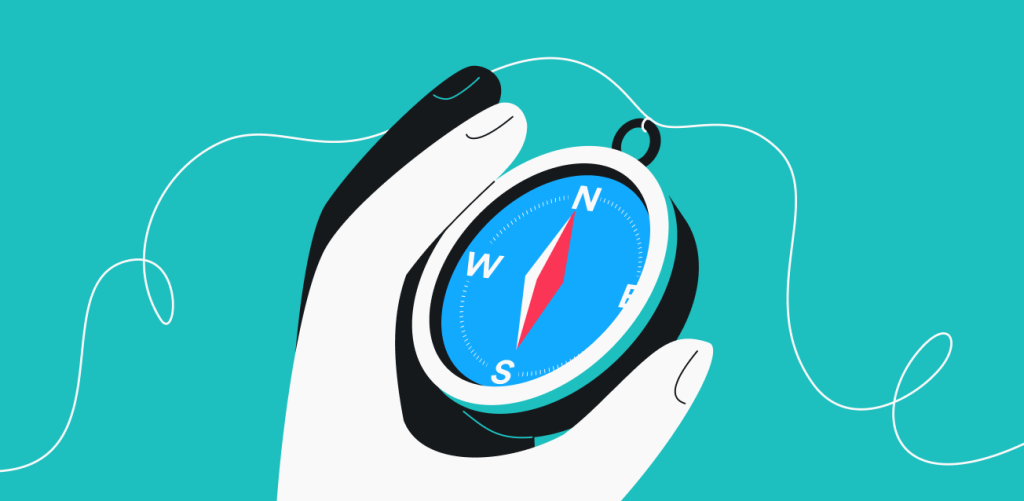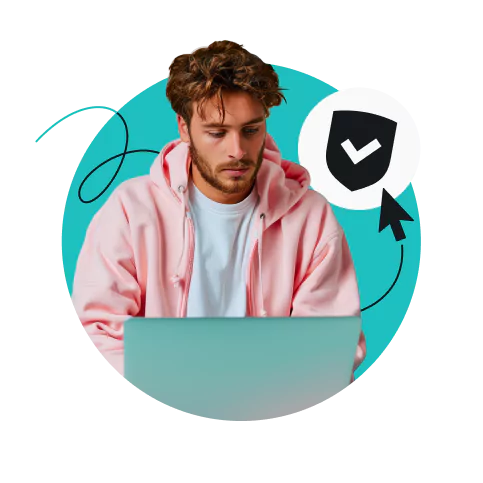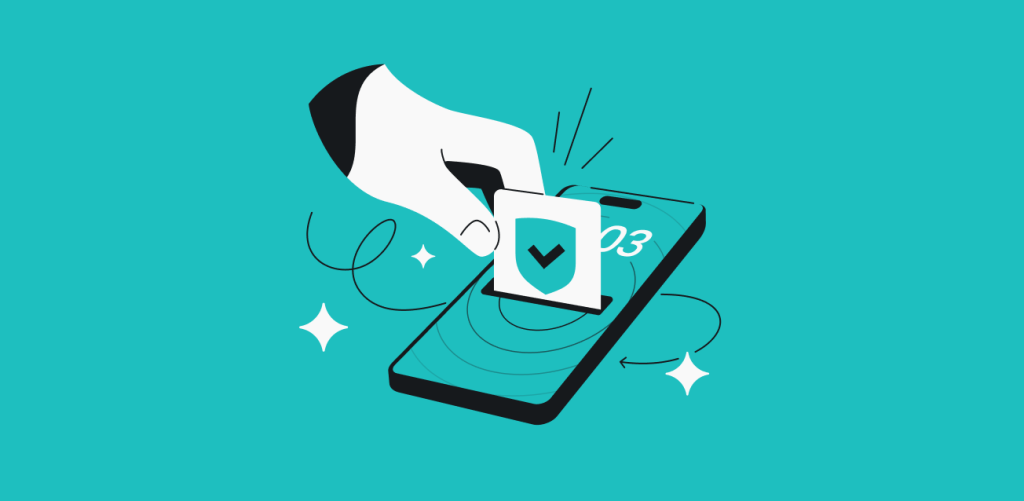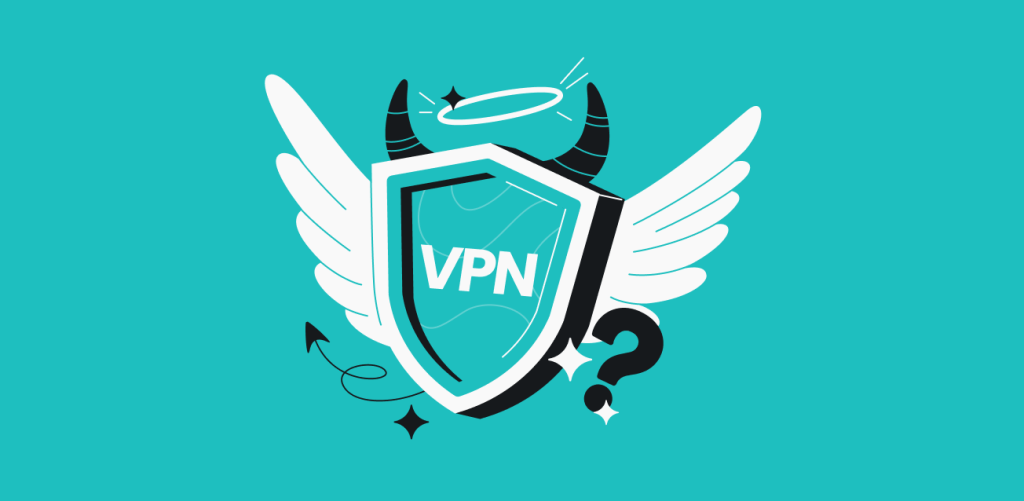
Hello Safari user! So you’re looking for a Safari-dedicated VPN (Virtual Private Network)? Well, look no further — it doesn’t exist. And while you might’ve heard of Apple’s pseudo-VPN that works similarly to a Safari VPN extension, it’s not the same.
The good news is that thanks to how a VPN works, you can get all its benefits even when using a browser without a dedicated extension, such as Safari. What is the best way to do that? Let’s explore.
VPN for Safari in a nutshell:
Does Safari have a VPN? | No, Safari no longer has a built-in VPN. |
|---|---|
How do you choose the best Safari VPN? | The best VPNs for Safari are actually VPNs suitable for Apple devices. When choosing a VPN, look for:
|
What is Private Relay? | A preinstalled software on your Apple device that encrypts your DNS information, IP address, and internet traffic — similar to a VPN, but not the same. |
Why should you use a VPN on your Apple devices? | For enhanced online security and privacy, as well as geo-restricted content access. |
How do I enable a VPN on Safari? | Safari doesn’t support VPN extensions, so you will have to install a VPN app on your device. |
Does Safari have a VPN?
Despite Safari having VPN extensions in the past, they’re no longer available. But maybe that’s a blessing in disguise. Why is that?
A VPN browser extension encrypts only the browser data and not the rest of the internet traffic. Desktop or mobile apps like Google Maps, Netflix, or TikTok use traceable data. So, you should look for something that encrypts the rest of the data traffic.
To keep your browsing and searching history private, download Surfshark, a VPN for your Mac, and run it in the background. This effectively makes Surfshark a VPN for Safari (and encrypts ALL your internet traffic data). Or, even better, set up a VPN on a router and run it on all your iOS devices.
Best VPN for Safari = best VPN for Apple OS
Safari is a browser that comes preinstalled on all Apple products, so what you need is a VPN for an Apple device. There’s no such thing as THE BEST because it depends on the use and the user. But there are certain things to look out for when picking the best for you.
If you’re looking for an Apple-compatible VPN with additional features, like an ad blocker, Surfshark is the one. Also, you can add Surfshark to Siri’s shortcuts and manage your VPN connections with clever automation.
Whatever you choose, here’s what to consider when choosing a suitable VPN for your iOS (or macOS):
Remember, the VPN market is booming, and there’s no cure-all VPN. Many of them offer different features within their bundles.
I’ve compiled a unique VPN feature list offered by different VPNs. Not all VPN providers have all the listed features, and some (like the antivirus or the ad blocker) come as additional software.
VPN feature | What’s it do | VPN provider that has it* |
|---|---|---|
Ad blocker | Blocks intrusive and malicious ads | Surfshark, NordVPN, Private Internet Access, CyberGhost, TunnelBear, ProtonVPN |
Antivirus | Protects your device from viruses and other types of malware. | Surfshark, Private Internet Access, CyberGhost, TunnelBear, ProtonVPN |
Nexus routes your traffic through a VPN server network, making staying on the web that much safer | Surfshark | |
Enables access to other devices via encrypted tunnels | Nord VPN | |
Obfuscation | Blends encrypted data with regular internet traffic to not attract attention | Surfshark, NordVPN, ExpressVPN, IPVanish, ProtonVPN |
DNS leak protection | Keeps your DNS info safe by adhering to the no-logs policy | Surfshark, NordVPN, CyberGhost, ProtonVPN, PureVPN |
Kill Switch | Protects you from being exposed when the VPN service connection drops | Surfshark, NordVPN, IPVanish, ExpressVPN, CyberGhost, Private Internet Access, PureVPN, ProtonVPN |
MultiHop (Double VPN) | Uses a ton of dedicated servers to cover your tracks and grant you access to anything geo-restricted — an internet without borders | Surfshark, NordVPN, Proton VPN, ClearVPN, Hide.me VPN, Private Internet Access |
*The list of providers isn’t full, and there are more providers that offer some of the features
Check out how Surfshark compares to other VPN service providers:
Why should you use a VPN on your Apple devices?
Having a VPN on iPhone or Mac, and not only its extension, means:
- Having better security and privacy online. A VPN will encrypt your Safari browser traffic, making it much harder to track or intercept, including your ISP, government agencies, and hackers.
- Connecting to public Wi-Fi safely. Public Wi-Fi networks have many vulnerabilities and can often become a cesspool of hackers waiting to access your sensitive information. A VPN will encode that information, making it indecipherable for these criminals.
- Accessing global content. A VPN will come in handy when traveling or if you’re working remotely from another country and have problems accessing the services and sites you usually use at home or need for remote work.
Also, when you buy a premium VPN, you get a bundle of features and benefits. And many VPN providers will also offer you unique add-ons. That means there’s no such thing as THE BEST VPN since the user defines that value. It all depends on what you need and what features you’ll use.
Is Apple’s Private Relay just a VPN for Safari?
No, but Apple’s iCloud+ Private Relay is the closest thing to a dedicated Safari browser extension. The issue is that Private Relay is only compatible with Safari. So, if you’re using Chrome on your Apple device, that’s a big red NO to any encrypted and safe browsing. The upside — it works on every Apple device. The downside? To use Private Relay, you must be an iCloud+ subscriber.
Private Relay vs. VPN
Private Relay is a preinstalled piece of software on your iOS device. When enabled, it encodes your DNS (Domain Name System — the phonebook of the internet) information, IP (Internet Protocol) address, and whatever you’re accessing on the internet. Doing so stops user fingerprinting — collecting bits of info about you and building your profile without your knowledge.
So, it acts similarly to a VPN — it encodes your information. However, the similarities pretty much end here, as it lacks other features. As for the differences between Apple’s iCloud Private Relay and paid VPNs, here are the main ones:
Features | Private Relay | VPN |
|---|---|---|
Kill Switch | ||
DNS leak protection | ||
IP encryption and provision of a new one | ||
Despite these differences, if you’re already an iCloud+ subscriber, you can treat Private Relay as a free VPN. Or as something close to it. Just remember to turn on private browsing on Safari to maximize privacy.
However, looking through an objective lens, besides being Apple-exclusive, Private Relay software doesn’t offer anything unique to the market.
The lack of connections to a multitude of servers (or the “double-hop” feature, as Apple puts it) translates into the inability to overcome geographical restrictions, censorship, and price differential.
Even if you’re not aiming to be a part of Anonymous, better personal data protection should be everyone’s priority. A premium VPN would provide you with many more benefits.
How do I enable a VPN on Safari?
To enable Surfshark, get the app, run it, log in, and press Quick-connect.
If you already have a VPN on your Mac but want to fiddle with its settings manually, follow these steps:
- Go to System Preferences and hit Network;
- Press the plus sign at the bottom left corner of the white table with your connections;
- Choose VPN from the Interface dropdown menu, and pick a VPN protocol you’d like to use from the VPN type dropdown menu;
- Create or choose a Service Name and click Create;
- Fill in the server details using the VPN settings provided by the service and click the Authentication Settings;
- Enter your authentication credentials supplied by your VPN provider and click OK;
- Click Advanced… and check the option to Send all traffic over VPN connection;
- Then hit Apply and Connect;
- Your VPN is now linked to the Mac you’re using. To disconnect, click Disconnect.
A VPN for Safari? Try Surfshark
No premium VPN provider has a VPN extension for Safari. However, there is a way to be safe.
Many VPNs are compatible with both Apple operating systems. But do you know what one of the best VPNs with desktop and mobile apps (a shameless plug-in coming up) is? Surfshark.
Just to name a few, Surfshark stands out in three categories when compared to other VPNs — low monthly price, an abundance of security features, and unlimited simultaneous connections.
What else is needed when exploring the far reaches of the internet?
FAQ
Does Safari have a VPN?
Safari doesn’t have a built-in VPN. However, Surfshark is a great option, offering VPN protection on iOS and macOS.
Is there a free VPN for Safari?
Yes, there are free VPN services suitable for Safari. However, many of the free VPN providers make money by possibly selling user data to third parties. So do a background check when using something for free (especially when your privacy’s at stake). Better yet, choose a trustworthy premium VPN service.
Which VPN works with Safari?
All the major ones, but Surfshark meets Safari users’ needs and offers secure browsing at an affordable price. Along with Siri’s ease-of-use feature — add Surfshark to your shortcuts and use it with clever automation.
Do Apple devices need a VPN?
We advise you to use a VPN if you want your browsing to be encrypted and safe from prying eyes (e.g., the internet service provider) and if you want to keep your data safe on public networks.




